
8 Things to Help You Stop Fighting in a Relationship and Feel Close Again

Fighting with the person you love the most can feel extremely negative, but it’s still a familiar experience for many people. Being in a close relationship can uncover some of our inner issues and trigger unexpected reactions. Constant hostile interactions with our loved ones brings distress in the relationship and can start a circle of constant fighting. But with focused dedication, there are ways to understand the root causes for your disagreements and solve your conflicts.
Today, 5-Minute Crafts will share with you some advice on how to bring peace into your relationship.
1. Don’t keep your emotions bottled up

While it’s better to not indulge in negative emotions and start arguing and criticizing your partner right away, it’s important to acknowledge what you feel. Unresolved conflicts create tension in the relationship, making it less enjoyable for both partners and causing some phycological and even physical discomfort.
Let your partner know that there’s a problem that is bothering you. Don’t bury your feelings, but act respectful and don’t let the rush of emotions overcome you.
2. Calm down before discussing your problem
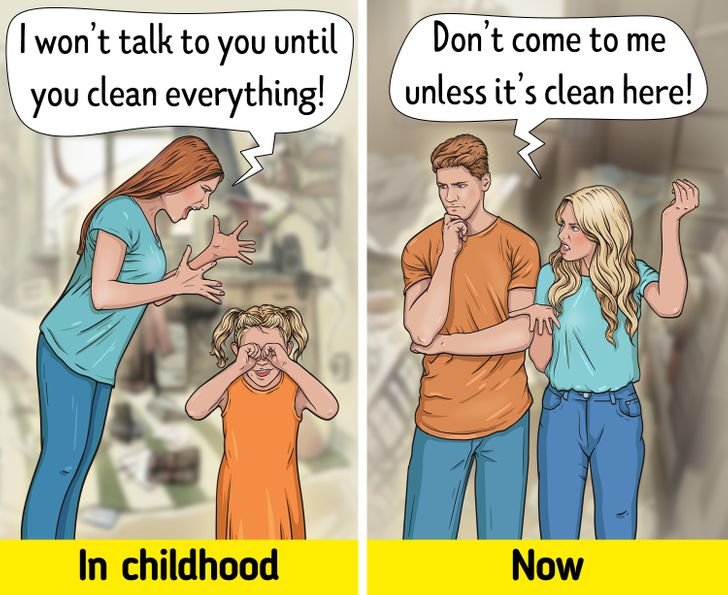
Many arguments are based on past negative experiences and may be triggered by words or actions that seem neutral at first. So instead of acting right away, take a step back and be curious — try to figure out why you’re feeling this way now, whether you’ve already had a similar experience, and check to see whether you and your partner are falling into certain patterns of behavior.
It will be difficult to resolve a conflict if you didn’t take enough time to think it through. You’re unlikely to make a rational and useful decision during a tense moment when both you and your partner are worked up and angry.
3. Determine the underlying issue behind your complaints
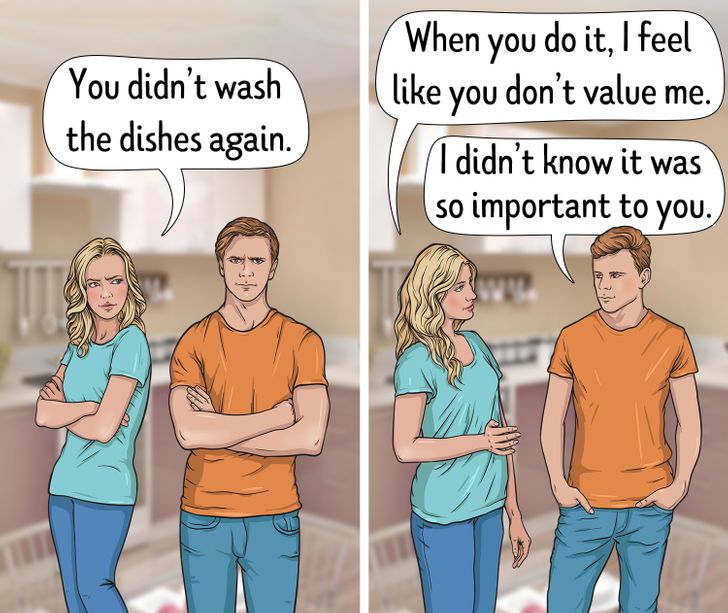
Partners fight when their needs haven’t been met. But we often don’t address the issue in the most straightforward way. For example, nagging your partner about leaving dirty dishes in the sink again may not be about the dishes themselves, but about you not feeling respected and valued in the relationship.
Understanding the real reason behind your argument helps both partners to see the needs of the other person and be able to fulfill them.
4. Understand exactly what you want and be open about it
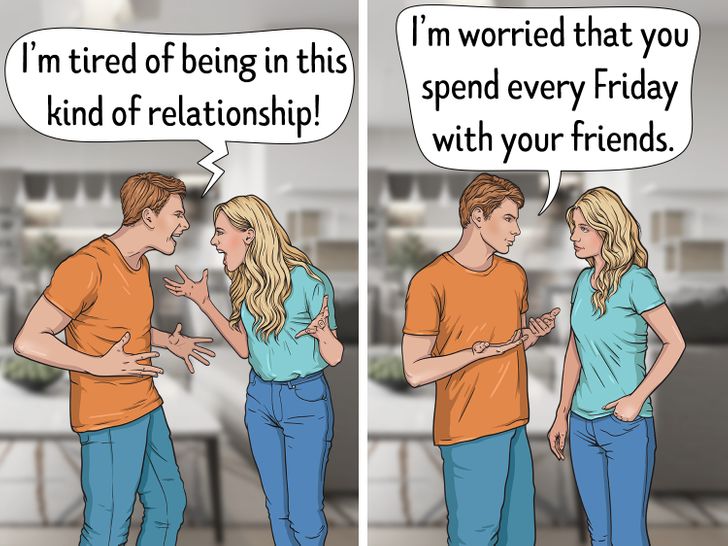
Honest communication is the key to a successful relationship. Keeping silent and waiting for your partner to figure out what you expect of them is an unproductive strategy that is unlikely to get you anywhere. Initiate a conversation, but first determine what you want, how you feel, and what result you’d like to achieve with this talk.
5. Try to not be critical and defensive
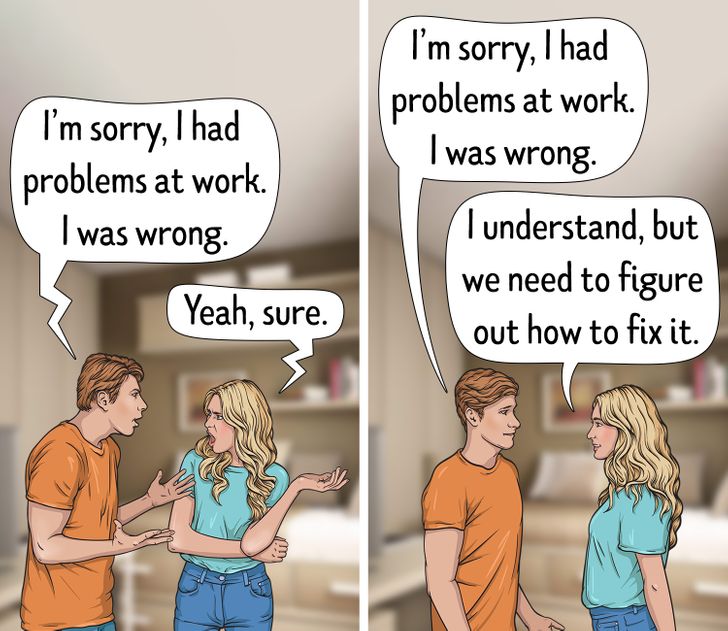
When our feelings get hurt, we tend to shut down and act defensively. But this strategy prevents us from truly listening and understanding our partner. We might hear their words through our critical inner voice that misconstrues the things our partners are saying.
An ability to be vulnerable and let our guard down allows us to have a more honest conversation, and in this case, our partner can truly see us and feel our concerns without feeling responsible for all the problems.
6. Care more about your partner than about winning the argument
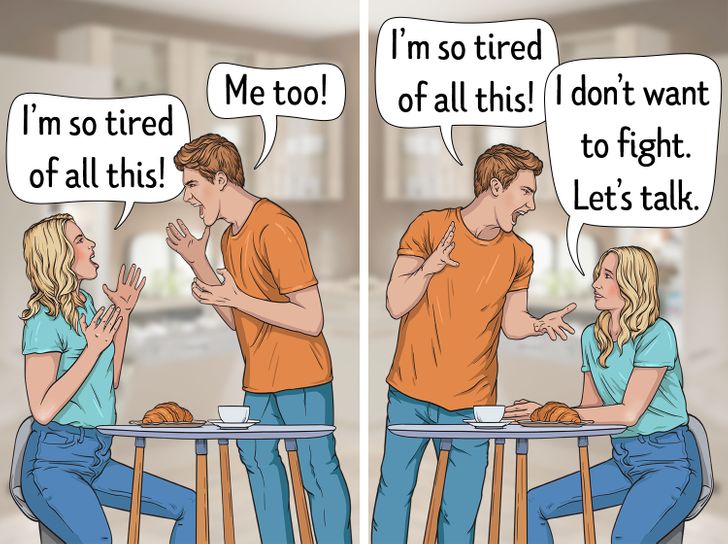
When we fight, our first emotion is likely to be a desire to protect ourselves from pain, so we might start accusing our partner and getting angry with them. If you want to calm things down and initiate a more intimate conversation, you might want to try approaching your partner from a more loving and vulnerable side.
Just drop your half of the dynamic in the argument and let your partner know that they’re far more important to you than fighting and winning an argument. This doesn’t mean that you should ignore your needs and settle for your partner’s solution to the problem. But this technique allows you to go from aggression and defensiveness to a more open and honest conversation.
7. Sometimes, you have to be patient and not expect the situation to change right away
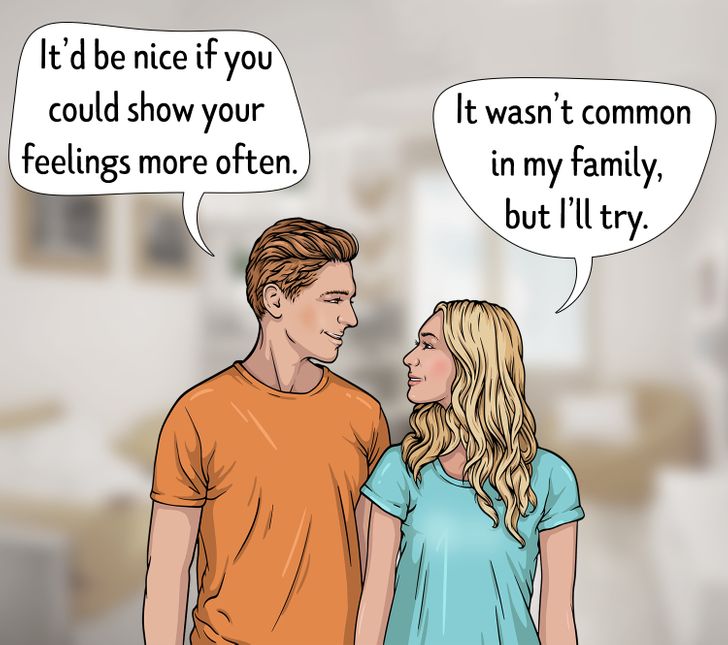
We all have emotional baggage and some of our problems and our inability to solve them may stem from this. Your partner may be unable to meet some of your emotional needs right away because of their past experience in relationships and life. So it might take time for them to truly recognize the importance of that need for you and find ways to fulfill it.
Come up with a plan together with your partner and follow it. Change takes time, but you both need to be willing to work on solving the issues and taking the steps to do it. Simply promising to change isn’t enough.
8. Seek professional help for additional support
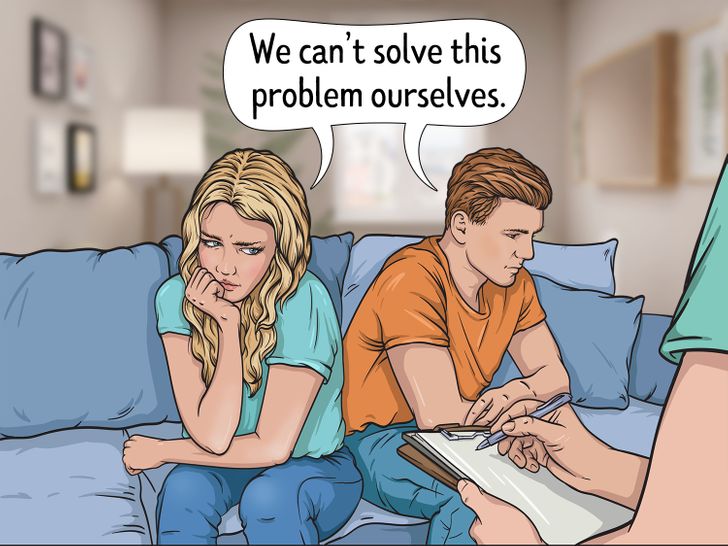
If you feel like no matter how hard you try, all your conversations are going nowhere, but you both are interested in staying in the relationship, seek professional help. Therapy allows you to get a perspective from a third party who may notice some patterns or problems you’ve overlooked. It may help you understand each other better and receive guidance to get through your problems — giving you a feeling that you don’t have to figure them out all alone.